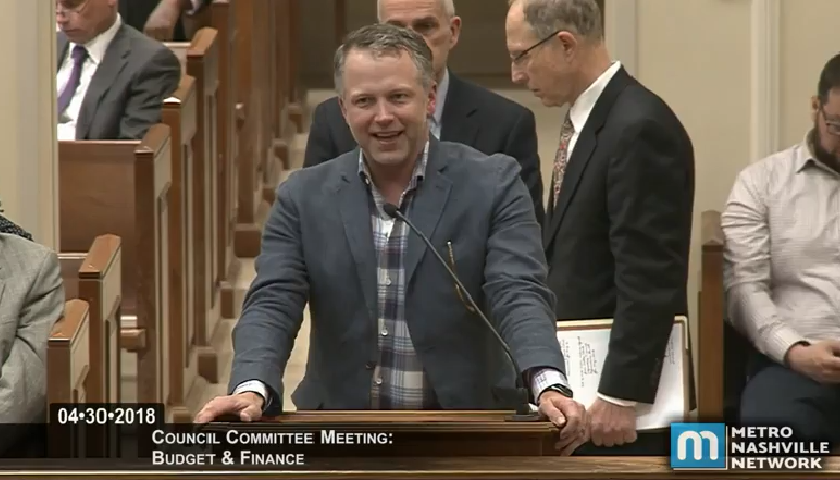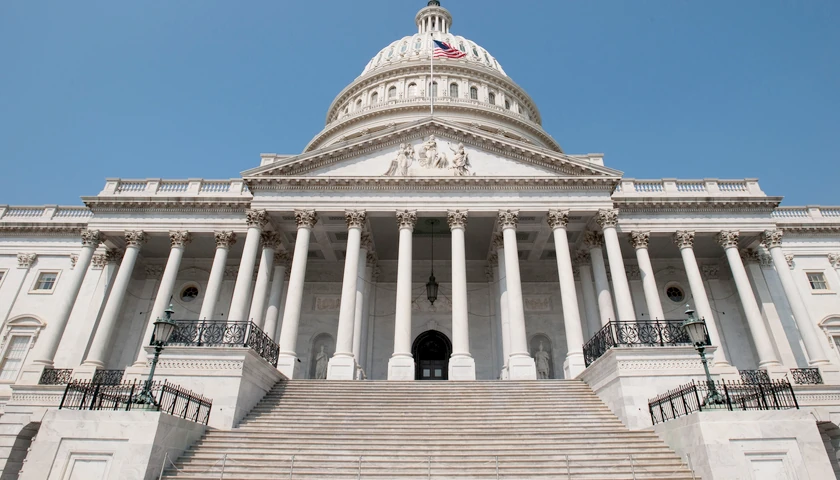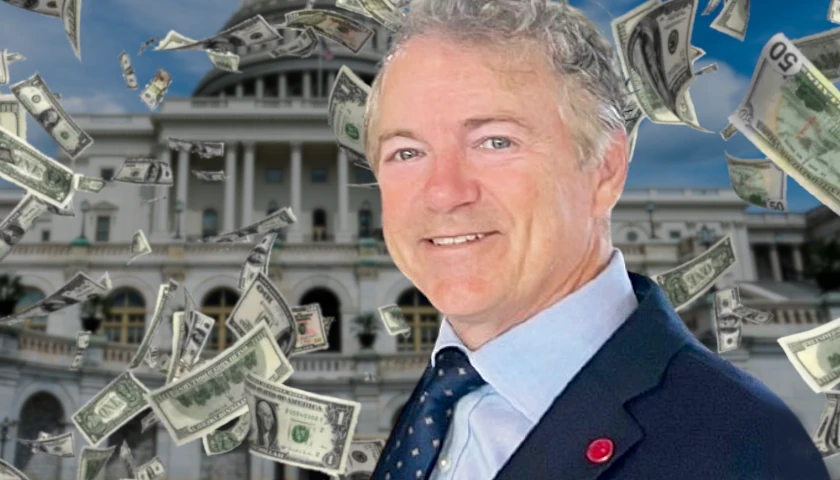Jamie Hollin, the attorney who represented plaintiff Ludye Wallace in the historic mayoral special election date case the Tennessee Supreme Court decided unanimously in his client’s favor last month, is calling on Jim DeLanis, Chairman of the Davidson County Election Commission to resign for causing the Metro Nashville/Davidson County Government to spend an extra $2 million on the May 24 special mayoral election.
Hollin appeared at Monday’s meeting of the Budget and Finance Committee Meeting of the Nashville/Davidson County Metro Council.
When the Committee Chairman, Council Member Tanaka Vercher, opened up discussion of a resolution to appropriate $2 million for the special mayoral election on May 24, Council Member Glover asked how it came to be that the city was spending an extra $2 million on a second election just three weeks and two days after more than 120,000 voters turned up to vote in the May 1 Nashville transit plan referendum, which was defeated by a 64 percent to 36 percent margin.
At around the 53:00 mark in the video of the Budget and Finance Committee meeting (which can be seen and heard in the video clip below), Committee Chair Tanaka Vercher asked Hollin to express his views on the issue to the committee.
“Is attorney Hollin here? Can you come up?” Vercher asked.
“We’re trying to understand with clarity how we got to this juncture from your perspective,” Vercher said, referring to the resolution requesting the expenditure of an additional $2 million of taxpayer funding for a special mayoral election a mere three weeks and two days after the May 1 transit plan referendum, which was estimated to cost well over $1 million in its own right.
“How we got here, you know, the mechanism was a lawsuit, but it started March 9,” Hollin began.
“That was the initial meeting of the election commission. I attended the meeting, asked them to do it [set the date for the special mayoral election at May 1, the same date as the transit referendum],” he continued.
“I used some language … I said a bunch of fourth graders could figure it out,” attorney Hollin continued.
The Tennessee Star attended that March 9 meeting, and published this story describing it: “The Fix Is In: Davidson County Election Commission Ignores Plain Meaning of Law, Votes 3 to 2 to Set August 2 Date for Mayoral Election.”
NASHVILLE, Tennessee–Three of the five members of the Davidson County Election Commission ignored the plain meaning of Tennessee law and voted to set August 2, 2018 as the date for the special election to select a new mayor of Nashville late Friday afternoon, thereby plunging the city into a likely firestorm of lawsuits and threatening the legitimacy of an election held on that date.
The meeting was convened in response to the resignation of Mayor Megan Barry on March 6, and the swearing in of Vice Mayor David Briley the same day as acting mayor. Briley has already declared that he will be a candidate for mayor in the upcoming special election.
Commission Chairman Jim DeLanis, Commissioner Jesse Neil, and Commissioner Emily Reynolds, all Republicans, formed the three member majority who voted in favor of the motion to set the election date at August 2. Commissioner Tricia Herzfeld and Commissioner A.J. Starling, both Democrats, formed the two member minority who voted against the motion.
By the same three to two margin, the commission rejected an earlier motion by Commissioner Herzfeld, an attorney, to submit a request for declaratory judgment before the Chancery Court on Monday to obtain an official ruling on the proper interpretation of state law and metro charter as it relates to the legal date for the upcoming special mayoral election.
“Commissioner Herzfeld has raised an approach which, I don’t think we have considered before, which is to apply for a declaratory judgment action. That’s to me uncharted water. I don’t know how that would be viewed by the court,” Chairman DeLanis said, explaining in part his opposition to this motion.
Also by a three to two margin, the commission rejected another earlier motion by Commissioner Herzfeld to set May 1 as the date for the special election to select a new mayor of Nashville.
At Tuesday’s committee meeting, Hollin then explained what happened next.
“When it [the special mayoral election] could have been May 1, then on March 26, the election commission had another meeting, and I was the only member of the public there, and asked them again to please, take this one last opportunity to not set fire to $2 million of taxpayer money,” he said.
“As soon as I got done talking, they adjourned the meeting. Because after March 26, the ship kind of sailed. In other words, that election could no longer be held May 1,” Hollin continued.
He then blasted the Davidson County Election Commission and in particular Chairman DeLanis for creating the entire wasteful situation.
“I think it’s a tragedy for the taxpayers. We shouldn’t be here. It was entirely avoidable. This is a crisis of their own making,” Hollin said.
“If I was the chair of the commission, based on the comments in the March 9 meeting, and now we’re coming here asking for $2 million, I would resign. I wouldn’t stay there,” he added.
“And I know this body doesn’t appoint those members, but I would start circulating and send it to the appointing authorities that do, and ask for him to be replaced,” Hollin concluded.
“State Sen. Steve Dickerson (R-Nashville) appointed and has the authority to replace DeLanis,” attorney Hollin tells The Star.
“I thought Republicans wanted to save taxpayers money, not set it on fire on a whim,” Hollin added.
Earlier in the committee meeting, Chairman DeLanis attempted to defend his actions, and the actions of the other two members of the election commission who made the politically motivated and legally unsound decision on March 9 and subsequently again on March 26 to not follow the law by setting the date for the special election for August 2, rather than either May 1 or May 24 as the law clearly required.
DeLanis then made an argument to the committee that was factually untrue. (beginning at about the 40:00 mark of the video)
“So [in line with] the long standing policy of this commission and a couple of court cases that had approved that policy in the past, we set the date on August 2,” DeLanis said.
DeLanis’s statement that there were “a couple of court cases that had approved that policy,” was factually untrue, and he knew it was factually untrue, because it was that assertion that the Tennessee Supreme Court utterly rejected in its unanimous decision.
DeLanis continued:
The case went up on appeal, and the Supreme Court reversed our decision and the lower court’s that had ruled with us previously. So that is why we’ve got the election on May 24 and that is why there could be additional costs.
I would note that during the oral arguments on this, when we made the point that this could cost the city money, the Supreme Court recognized that, they expressed their concerns about that, but nonetheless they decided upon their reading of the charter that we had to have a special election, so that’s where we are for this election for the mayor, and this could happen again, depending on how the time periods fall, we could end up with more special elections than we had under our previous policy.
Under questioning, DeLanis conceded that “if we had predicted the Supreme Court’s decision we could have combined the elections.”
He claimed that “instead, we followed the existing policy.”
Contrary to DeLanis’ claim, there was no existing policy.
Instead, there was a concocted political effort to pretend that “dicta” from a 1953 Tennessee Supreme Court decision, Wise v. Judd, was a legal holding, an approach that every attorney familiar with the law, and several who testified before the commission, advised against.
“The actual language of the Wise v. Judd decision, however, shows two things,” The Star reported last month:
- The legal point at issue was not for the court to establish what was meant by the term “general municipal election.”
- The language used by Justice Harbison in his opinion actually supports the alternative view advanced by supporters of the May 1 election date that “general metropolitan election” refers only to the quadrennial election of the mayor and members of the city council.
The Star is not aware as of the publication of this story that any Metro Council Members have circulated a letter requesting the resignation of Jim DeLanis as Chairman of the Davidson County Election Commission.
Meanwhile, the taxpayers of Nashville/Davidson County can point to at least two million reasons why such action would be a good idea.




